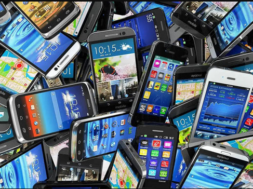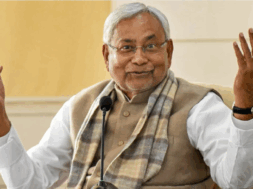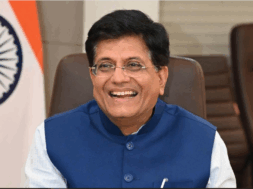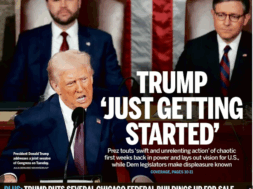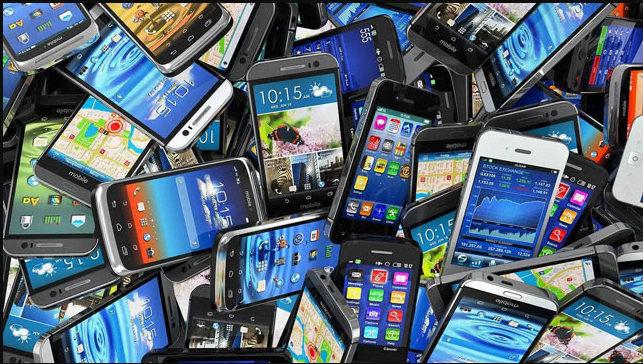
NEW DELHI, Apr 12: The Donald Trump administration has exempted smartphones, computers and other electronics from its punishing “reciprocal” tariffs — lessening the cost impact on American consumers for a host of popular high-tech products.
The exemptions, published late Friday in a notice by the US Customs and Border Protection office, cover various electronic goods, including smartphones and components entering the United States from China, which are currently subject to a staggering additional 145 percent tariff. Semiconductors are also excluded from the “baseline” 10-percent tariff on most US trading partners and the added 125-percent levy on China. The new tariff guidance includes exclusions for other electronic devices and components, including solar cells, flat panel TV displays, flash drives, memory cards and solid-state drives used for storing data.
The exclusions narrow the range of sweeping 10-percent levies announced by President Donald Trump earlier this month and the punishing additional rate on goods from China. Trump has targeted China especially with his “reciprocal tariffs” meant to address practices Washington deemed unfair, most recently introducing a new 125-percent tariff on goods from the world’s second-biggest economy that took effect this week.
The rate piled atop an earlier 20-percent levy Trump imposed over China’s alleged role in fentanyl supply chains and other existing tariffs from previous administrations — taking the full figure to at least 145 percent for many products. Many of the exempted products, including hard drives and computer processors, generally are not made in America. While Trump has referred to tariffs as a way to bring manufacturing back to the United States, it will likely take years to ramp up domestic manufacturing.
The guidance comes after Trump earlier this month imposed 145% tariffs on products from China, a move that was poised to take a toll on tech firms like Apple, which makes iPhones and most of its other products in China.
Earlier on Wednesday, President Trump announced a 90-day pause on his reciprocal tariff plans for countries that chose negotiations over retaliation. In contrast, Trump has imposed a sweeping 125% tariff on all goods imported from China.
The US President, in a post on Truth Social, had said that following the announcement of reciprocal tariffs last week, more than 75 countries have approached the United States for negotiations and have not retaliated against the decision.
On April 2, the US President had announced his “reciprocal tariff” move, under which the US would impose tariffs on other countries amounting to roughly half the rate those nations charge the US. He imposed a 10% global tariff on dozens of countries and promised far steeper “reciprocal” tariffs on April 9 for nations he claims have “ripped off” America.
(Manas Dasgupta)
